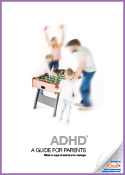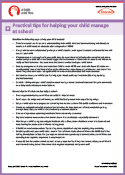You may have a choice of secondary school and choosing the right one can be a big decision. It is something that all parents (and children) find difficult, even without having to think about ADHD.
The following will help you make the most informed choice.
Remember that your local school with the best exam results or highest OFSTED (Office for Standards in Education, Children’s Services and Skills) rating may not be the best school for your child. School league table positions do not show whether your child will receive the best support or be happy there.
An ADHD-friendly school is likely to have a caring atmosphere, a good support system for children who are having problems and experience of children with ADHD. So, take a closer look at the schools in your area for these qualities.
A SENCO is a Special Educational Needs Coordinator, a teacher with specific training, whose job is to provide extra help and support for children with special educational needs. Aim to make an appointment to see the SENCO at the school and make an assessment of how ADHD is supported in that school.
*or equivalent position if situated outside of England
Your local ADHD support group may be able to put you in touch with other parents of children with ADHD who are already at local secondary schools. This way you may be able to benefit from their experience.
Parents (and children) can find it useful to visit the chosen secondary school for practice runs, so the child does not feel as anxious and can visit their future classrooms and meet their teachers.
School creates many challenges for children with ADHD, but with patience and a good plan, your child can thrive in the classroom. As a parent, you can work with your child and their teacher to put practical strategies into place to promote learning both inside and out of the classroom. With the right support, these approaches can help your child meet their learning challenges and experience success at school.
Other parents of children with ADHD have found it useful to provide their child’s teachers with a ‘one page’ description of their child. This could include their barriers to learning, strategies to support and some tips that teachers should know to help them understand and get the best out of your child. Teachers understand that it helps to get to know the child’s personality and how he or she learns.
An example template that you can complete is provided in the
Resources section of this website.












